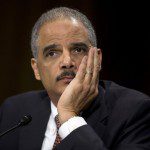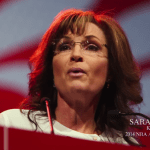Recently Mark Tooley posted a piece I entitled “For Evangelicals, the Temptation of Comprehensive Immigration Reform,” in which he criticized a movement amongst evangelical leaders to endorse comprehensive immigration reform, however noble their intentions might be. Matthew Soerens, who focuses on immigration issues for World Relief, posted a response I entitled “Evangelical Support for Immigration Reform is Biblical, Not Political.” Quite a conversation ensued in the comments. Below is Mark Tooley’s response in turn to Soerens:
*
God, Immigration and the Vocation of the Church
By Mark Tooley
Matthew Soerens diligently responded to my column without really addressing my key questions as to the vocation and mandate of church leaders to aggressively push specific legislation to which scripture and church tradition don’t speak specifically and for which there is not consensus among their own memberships. He complains that most evangelical clergy don’t preach from the pulpit about immigration without considering that they prioritize the gospel over important but still subordinate political issues. He admits that the Bible doesn’t offer direct counsel on U.S. immigration policy but still seems to insist that its thrust can point in only one direction on this issue. He exclusively credits “population control” groups for repeatedly blocking the legislation he seeks without fully explaining why Congress should bend to such a narrow constituency. He cites business, labor, law enforcement and “most” Americans as supporting his goal, again without offering a political rationale for the continued resistance. He links the “population control” groups to abortion, and complains that one board member of my organization works for one such group.
That board member is actually a pro-life Anglican who previously spent years working for evangelical renewal and pro life advocacy in the United Methodist Church, whose officials are pro choice, pro population control, and also share Soerens’ political goal of legalizing illegal immigrants. By most accounts, pro-choice and pro-population-control philanthropies like the Ford Foundation and George Soros are heavily financing the push for mass legalization, exponentially outspending donors on the other side. Last year the National Association of Evangelicals, the parent group of Soerens’ group, was revealed to have received hundreds of thousands of dollars from the pro choice Hewlett Foundation. NAE’s longtime political spokesman Richard Cizik, who shares Soerens’ immigration views, publicly supported population control as part of his environmental agenda while still with NAE. Jim Wallis’ Sojourners, a prominent part of the evangelical immigration coalition, has received generous funding from Soros.
My own group has no official stance on immigration legislation. Our staff and board include different views. Where we are largely agreed, and what has motivated our work for 32 years, is a concern that the institutional church not confuse the Gospel with debatable political specifics. Ecclesial bodies, when addressing contemporary issues, are typically wiser to speak of broad principles rather than lobby for specific legislation, a vocation often better left to lay persons. There also needs to be discernment by church representatives about core Christian teachings versus questions of prudential judgment. And dogmatic church stances on civil legislation not supported by church members undermine credibility and integrity.
Soerens and his colleagues in church groups backing sweeping legislation that would offer mass legalization of illegals are undoubtedly sincere. But they would do better to perform their political advocacy independent of church institutions, backed and funded by supporters who unequivocally share their views. There could then be a vigorous debate in which people of faith hopefully would avoid the always constant temptation to claim God’s mandate for their politics.
Mark Tooley is President of the Institute on Religion and Democracy.











